COURSE OVERVIEW
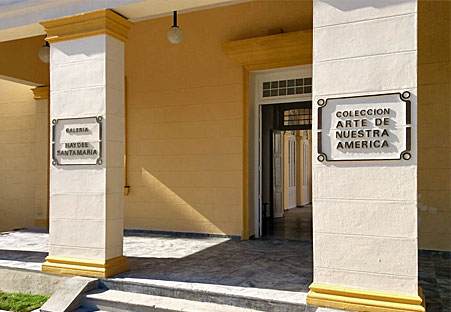
All students are required to enroll in 4 courses, choosing from a combination of CASA Courses and coursework at the University of Havana.
CASA Courses (60 contact hours / 4 semester hours)
CASA Courses are taught at the CASA Cuba Study Center (la Galería) by distinguished Cuban scholars vía Casa de las Américas and faculty from the University of Havana. Depending on interest and availability, local Cuban students are also invited to participate in CASA Courses.
Throughout the semester, students have access to an onsite https://casaeducation-cuba.com/curso/ where they can access course content and materials for all CASA Courses. Access to the website will be given prior to the start of the semester so that students can start reading and preparing for their courses in Cuba.
Examples of the courses commonly taught at the CASA Center can be found here: https://casa.education/havana#academic-programs/casa-courses
The courses offered at CASA are specifically designed for international students with little or no knowledge of Cuba, include site visits and invited experts that will engage with students. The format of theses classes is more akin to the US/international seminar style with debates, presentations etc.
University of Havana Courses (32, 48, and 60 contact hours / 2, 3, and 4 semester hours)
Students have the opportunity to enroll in up to two courses at the University of Havana (UH) as part of their 4-course program requirement, and are encouraged to take at least one of their courses at the UH to enhance cultural and social immersion into Cuban society.
The University of Havana is designed for Cuban students who are enrolled in a four year program with pre-determined courses where each cohort takes most of their classes together without many choices. There is little online/advance information of courses available. Examples of courses typically offered and taken by international students you can find below. Some courses require previous knowledge or completion of other courses and therefore are not available to visiting students. No pre-registration is necessary. International students will have a two week “shopping period” where they can visit classes of their choice. If you have interest in any specific subject or course, please let the CASA Director know in advance.
Course Credit
UH Courses can vary in length from 32 to 64 contact hours, and the equivalency is as follows:
32 contact hours = 2 semester hours
48 contact hours = 3 semester hours
64 contact hours = 4 semester hours
Final credit transfer determinations are made by CASA home institutions for their respective students.
The 32 and 48 contact hours courses can be supplemented through additional work at the request by the student to the professor resulting in one more semester hour, if needed. Example: a 32 contact / 2 semester hours course can be supplemented by additional academic work to a 48 contact / 3 semester hours etc.
Schools/Facultades
Traditionally, international students take most of their classes at two different schools (Facultades) within the university: Artes y Letras where literature, art history, linguistics and some cinema courses are being offered; as well as Facultad de Filosofia e Historia, the school where history, philosophy, sociology, and social work are taught. Beyond these two schools students may now also take courses at other departments, such as psychology, law, geography etc. but should inform the program director about their interests.
Syllabi
The Cuban education system does not frequently provide students with an extensive syllabus the way that US institutions do. Keep in mind that in order to grant departmental credit for a course, some home university departments may request course syllabi. A short general description of the courses offered at UH can be granted upon request. It is recommended that students keep a log of lecture topics, required readings, class notes, assignments, and final papers to provide to their home university department upon returning from Havana.
CASA Courses
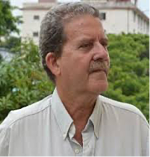 Professor: Dr. Enrique Beldarrain Chaple
Professor: Dr. Enrique Beldarrain Chaple
Medical specialist in Epidemiology. Doctor of Health Sciences. Full Professor of the Medical University of Havana, Senior Researcher. Research Coordinator of the National Information Center for Medical Sciences. Academician of the Academy of Sciences of Cuba. He has published 5 books and 72 scientific articles.
e-mail: ebch@infomed.sld.cu
Articles
First historical epidemiological approach to COVID-19 in Cuba. Annals of the Academy of Sciences of Cuba; Vol. 10, No. 2 (2020): special COVID-19.
http://www.revistaccuba.cu/index.php/revacc/article/view/862/867
The COVID-19 pandemic, case studies: Australia, New Zealand and Cuba
http://www.revhabanera.sld.cu/index.php/rhab/article/view/3567
Course Description
The course takes an initial historical tour of Cuban medicine and the development of health institutions and their relationship with society at each historical moment, reaching the present day where it analyzes the impact of the COVID-19 pandemic in Cuba, the multidisciplinary response designed to face it, the role of science in that response, biotechnology, social behavior and the influence of the disease in all aspects of contemporary life.
Syllabus
Salud.docx
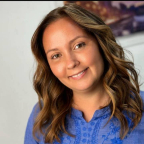 Professor: M.Sc. Tania Sevillano Hernández
Professor: M.Sc. Tania Sevillano Hernández
2011- Master in Didactics of Spanish and Literature, at the “Enrique José Varona” University of Pedagogical Sciences. Thesis: Workshop system for the development of oral communication in first-year students of the Spanish-Literature degree. Professor of the Department of Linguistic Studies of the University of the Arts, ISA Taught: Linguistic Studies, Theaterology and Dramaturgy profile, Faculty: Theater Art Writing and composition, Ballet profile, Faculty: Dance Art.
e-mail: sofisaul3@gmail.com
Articles
2023: Analysis of language from the process of aestheticization of the arts in language classes. In: XXI Scientific Conference on Art and Culture 2023, III Symposium “Thought and humanities in the Arts”.
2022: The construction of professional pedagogical discourse. In the book “Manual to analyze and construct professional pedagogical discourses.” Compilation made by Alicia Toledo Costa and Oriniel Martinez Ibarra. The book with ISBN 9789974949683, Montevideo, Uruguay.
Course Description
The course seeks to consolidate previously acquired knowledge of the language by students. Does not offer credit. It provides tools and exercises that will be useful for reading skills, discussions, presentations, research activities and the preparation of academic essays, as well as for the daily use of the Spanish language. The course helps the student in his linguistic and sociocultural immersion in Cuba.
Syllabus
Español.docx
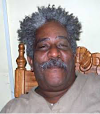 Professor Lic. Víctor Fowler Calzada
Professor Lic. Víctor Fowler Calzada
Poet, essayist, critic, narrator. He received the National Award for Criticism 1998, with his book "The curse". He is a frequent commentator on race relations in Cuba in national and international media. Her research interests cover the history of Cuban literature, as well as its reflections on the problems of gender, race and sexual identity. He has won several national awards as a poet. He is currently working on a volume of essays on some projects of social transformation in the country from the end of the 19th century to the present. Member of the Cuban Association of Cinematographic Art.
e-mail: oppianos@gmail.com
Articles
Discriminations: Terms to discuss and tools for action
http://www.lajiribilla.cu/articulo/discriminaciones-terminos-para-discutir-y-herramientas-para-la-accion
An exercise in auto-ethnography.
http://www.lajiribilla.cu/articulo/un-ejercicio-de-auto-etnografia
Course Description
This course examines the way in which Cuban cinema has shown the history of the Island, its society and its culture. Although the cinema is the main vehicle for the transmission of content that will be analyzed during the meetings, support will also be sought in the literature of the various periods, the plastic arts or music.
Syllabus
Cine.docx
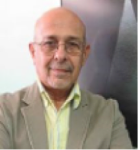 Professor Dr. Rafael Hernández Rodríguez. Political scientist, researcher, writer. He directs the journal of social sciences and cultural studies Temas. He has been a professor at the University of Havana and the Higher Institute of International Relations; Researcher at the Center for American Studies and at the Juan Marinello Institute. He has taught as visiting professor at Harvard, Columbia, the University of Texas, the University of Puerto Rico; CIDE and ITAM in Mexico, Renmin University in China; and served as a visiting scholar at the Wilson Center (Washington DC) and the Institute of Developing Economies (Tokyo). He has published on Cuban and US politics, inter-American relations, international security, migration, Cuban culture, civil society.
Professor Dr. Rafael Hernández Rodríguez. Political scientist, researcher, writer. He directs the journal of social sciences and cultural studies Temas. He has been a professor at the University of Havana and the Higher Institute of International Relations; Researcher at the Center for American Studies and at the Juan Marinello Institute. He has taught as visiting professor at Harvard, Columbia, the University of Texas, the University of Puerto Rico; CIDE and ITAM in Mexico, Renmin University in China; and served as a visiting scholar at the Wilson Center (Washington DC) and the Institute of Developing Economies (Tokyo). He has published on Cuban and US politics, inter-American relations, international security, migration, Cuban culture, civil society.
e-mail: rafaelmhdez@yahoo.com
Articles
"Conflict resolution" between the United States and Cuba: clarifications, premises and precautions.
In: Ritter A.R.M., Kirk J.M. (eds) Cuba in the International System. International Political Economy Series. Palgrave Macmillan, London.
https://doi.org/10.1007/978-1-349-24250-4_12
The story of the future. On the 5 and odd lessons of Obama before the Cuban civil society.
https://www.cries.org/?p=3271
Cuba. For a socialism without fear.
https://www.elviejotopo.com/topoexpress/cuba-socialismo-sin-miedo-i/
Course Description
This seminar examines the complexities of the US-Cuba conflict, a case study at the crossroads of North-South and East-West tensions, focusing on its most recent developments from the Cold War to the present, on domestic and multilateral interactions , nationals. international interests and actors, as well as points of convergence and confrontation at the bilateral, regional and extra-hemispheric level. This conflict is explored as an intermestic relationship, considering the roles that both countries play in each other's internal affairs. The seminar will emphasize the case of Cuba-United States relations as a paradigm for understanding nationalism and imperialism, the limits of US power, and the dynamics of Third World revolutions. It focuses in depth on the main themes that have shaped current relations between the United States and Cuba, their different political values and national interests, ideological and cultural representations, and their current meanings; but also their “ties of singular intimacy”, cultural affinities, mutual images and civic cultures. This special relationship offers a case study to discuss how a conflict matrix also involves real and potential instances of cooperation, where creative politics can flourish and develop the current process of normalization, with all its complexities and perspectives.
 Professor: Dr. Jorge Mario Sánchez Egozcue Professor of International Economics at the University of Havana and the Cuban Center for
Professor: Dr. Jorge Mario Sánchez Egozcue Professor of International Economics at the University of Havana and the Cuban Center for
International Economic Research (CIEI). He has lectured and been a visiting professor at the Brookings Institute and at the University of Texas at Austin, Columbia, and Harvard Universities, among others. He has numerous publications in international academic journals on US-Cuban relations, the Cuban economy, and international relations.
e-mail: jorgemse@yahoo.com
Articles
US-Cuba Relations Debate: How Should We Play Ball Now?
https://www.routledge.com/Debating-USCuban-Relations-How-Should-We-NowPlay-Ball/Dominguez-HernandezBarberia/p/book/9781138281240
United States-Cuba economic relations: pending normalization.
http://www.taylorandfrancis.com/books/details/9 780415893237/
Course Description
The course presents a selection of topics related to the general features that characterize the Cuban economy, the evolution of its structural transformations, and the challenges that arise for policies of international integration and economic and social development in the medium and long term.
Syllabus
Economía.doc
University of Havana Courses
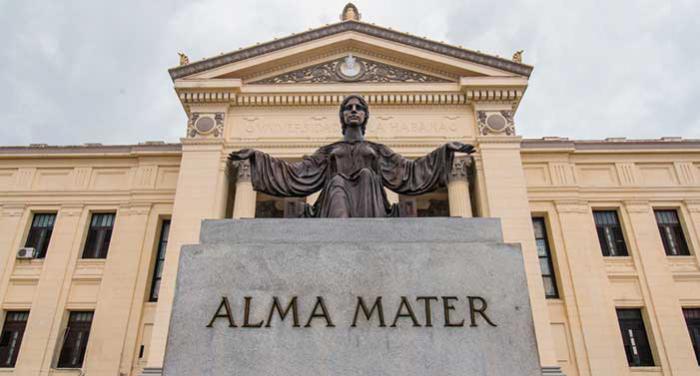 Students may enroll in courses in two divisions of the University of Havana: in the Social Sciences Division (Facultad de Filosofia y Historia-FFH) and the Division of Humanities (Facultad de Artes y Letras-FAyL). These divisions of the University of Havana offer a variety of courses in history, philosophy, political and economic theory, sociology, anthropology, gender studies, art history, musicology, sociolinguistics, and literature with concentrations in Latin America, the Caribbean and Cuba.
Students may enroll in courses in two divisions of the University of Havana: in the Social Sciences Division (Facultad de Filosofia y Historia-FFH) and the Division of Humanities (Facultad de Artes y Letras-FAyL). These divisions of the University of Havana offer a variety of courses in history, philosophy, political and economic theory, sociology, anthropology, gender studies, art history, musicology, sociolinguistics, and literature with concentrations in Latin America, the Caribbean and Cuba.
Opportunities to take courses at the University of Havana outside of these two divisions are extremely limited. Students hoping to take courses in other parts of the University must notify the program director upon application by the deadline established by the University of Havana so that requests may be made before they arrive. Such requests are not possible to guarantee, and depend on the prior approval of University of Havana administration before the semester begins.
University of Havana courses usually vary in length from 32 to 64 contact hours. Students will need at least 48 contact hours for a three-point credit, and 64 hours for a full credit. On an exceptional basis arrangements can be made with the Cuban professor or department offering a course to arrange for a student to do extra work to earn additional credits (for example: in a 32 hour course, which in the US system is worth two credits, a student may be able to complete additional assignments and earn a full three credits). Professors and departments vary on their willingness to make these accommodations, and students should speak to their professors about such requests at the first class meeting to have time to drop the class and add another if such arrangements cannot be made.
There is a two-week drop-add period for foreign students at the University of Havana. By the end of the second week of classes, students must decide and register for their classes.
Final determinations of semester course load and credit transfer policies are made by the CASA home institutions for their respective students. The Cuban education system does not frequently provide students with syllabi the way that US institutions do. Keep in mind that, in order to grant departmental credit for a course, some home university departments may ask to see course syllabi. Since syllabi are rarely provided, it is recommended that students keep a log of lecture topics, required readings, class notes, assignments and final papers that they may be able to provide to their home university department upon returning from Havana.
Students should communicate with their corresponding home institutions about the transfer of credits as early as possible. Because the Cuban academic calendar differs considerably from the US, the program will end about one month before the official end of the Cuban semester. Program students are therefore responsible to inform their Cuban professors early on about their departure date and arrange for final examinations ahead of time. Most professors in FFH and FAyL are used to this common practice by all international programs.
Popular UH Courses:
Since course offerings are not readily available on the UH website, we have provided some common courses among students:
- Art History
- Afro-Caribbean Studies - Dr. Lazara Menendez
- Caribbean Art III - Dr. Kirenia Rodríguez.
- Cuban Art I - Dr. Osvaldo Paneque
- History
- History of Cuba II – Dr. Paula Ortiz Gavilán
- History of the Cuban Revolution - Dr. Fabio Fernández
- History of the Formation of Latin American States - Dr. Sergio Guerra Vilaboy
- Literature
- Cuban Literature I - Dr. Leonardo Sarria
- Philosophy
- Latin American Philosophical Thought - Msc. Andrés Iglesias
- Theory and History of Marxism Leninism II - Dr. Natasha Gómez Velázquez.
- Theory and Ideology of the Cuban Revolution - MSc. Ariel Pierucci Pérez.
University of Havana Courses for Fall 2024:
Note: most likely only first year courses will be available as all other courses only start in mid-October
Schedules:
Mapa currocular Plan E.docx
Syllabus Cultura Cubana Otoño 2024.pdf
Letras I Semestre. Olguita.docx
Hist. del Arte I Semestre. Olguita.docx
Curso de Amñerica Latina y Cuba(AMERICANOS).docx






